Sozialunternehmen werden seit mehreren Jahren in der EU unterstützt. Diese Art von Unternehmen möchten soziale Probleme mit unternehmerischen Konzepten lösen. Auch in Rumänien haben sich Sozialunternehmen entwickelt und seit Mitte letzten Jahres gibt es auch ein Gesetz der sozialen Marktwirtschaft. Viele dieser Projekte werden am Anfang mittels EU-Fonds finanziert. Damit ihre Ideen dem breiten Publikum bekannt werden, hat die Vertretung der EU-Kommission in Bukarest ihnen dieses Jahr die Werbekampagne Yes, we care“ gewidmet. Die Kampagne findet alle 3 Jahre statt. 2016 unternahmen mehrere EU-Botschafter mit EU-Geldern finanzierte soziale Projekte. Monica Loloiu von der Vertretung der EU-Kommission in Bukarest über das Thema der diesjährigen Werbekampagne Yes, we care“:
Rumänien beginnt nachzuholen. Die Tatsache, dass es ein Gesetz der sozialen Marktwirtschaft gibt, das vor kurzem vom Parlament gebilligt wurde, ist ein wichtiger Schritt. Es gibt schon Organisationen und Unternehmen, die Projekte implementieren, die der sozialen Marktwirtschaft zuzuordnen sind. Das bedeutet, dass in Rumänien manche informierte Menschen wissen, dass sie durch Projekte etwas bewegen können. Was bedeutet überhaupt ‚soziale Marktwirtschaft‘? Der Entwurf eines Projekts, das soziale Ungleichheiten ebnet oder benachteiligte Personen in den Arbeitsmarkt integriert.“
Das geschah dank des Projekts MamaPan“, einer Bäckerei, in der das Brot nach allen traditionellen Rezepten zubereitet wird, ohne Zusatzstoffe, Konservierungsstoffe oder Industrie-Hefe. Das Sozialunternehmen wurde durch EU-Fonds finanziert und wurde eröffnet, um insbesondere alleinerziehenden Müttern zu helfen. Irina Sorescu, Managerin dieses kleinen Geschäfts, erläutert:
Das Projekt fing im November 2014 an, als wir die Finanzierung bekommen haben. Die Idee entwickelte sich Im Rahmen der Stiftung »Partnerschaft für Gleichheit«. Das ist die Stiftung, die die Bäckerei »MamaPan« eröffnet hat und die den verwundbaren Frauen gewidmet ist. Nachdem wir Kontakt zu diesen Frauen aufnahmen, haben wir erkannt, dass ihr größtes Bedürfnis ein stabiler Arbeitsplatz ist. Unter den verwundbaren Gruppen haben wir die alleinerziehenden Mütter als am meisten gefährdet erkannt. Für mehrere Arten von Arbeitsgebern stellen sie nicht erwünschte Angestellte dar. Grund dafür ist ihre Verantwortung in der Familie und dass sie nicht jederzeit verfügbar sind.“
Auch wenn der Brotmarkt in Bukarest groß und der Wettbewerb hart ist, hatte das soziale Unternehmen MamaPan“ Erfolg. Den Kunden gefiel nicht nur das Brot, sondern auch die Idee, den sechs alleinerziehenden Müttern, die dort angestellt sind, zu helfen. Irina Sorescu berichtet weiter:
Wir sind eine Organisation mit viel Erfahrung in der Verwaltung der Projekte mit EU-Finanzierung und hatten keine Probleme, das Projekt zu erstellen, insbesondere da wir eine klare Idee hatten. Es gab Probleme in der Abwicklung des Projekts, insbesondere Verzögerungen bei den Zahlungen und andere bürokratische Förderungen. Andererseits hätten wir wahrscheinlich nicht die Möglichkeit gehabt, das Projekt ohne diese anfängliche Hilfe zu starten. Schwer war es nach dem Ablauf des Projekts, in dem Moment, in dem wir wie ein jedwedes andere Geschäft zurechtkommen mussten, ohne jedwede externe Hilfe. Umso mehr, da wir unseren Angestellten viel mehr als ein normales Geschäft anbieten. Es ist ziemlich schwer, in Bukarest Vertrieb zu machen, da gibt es viel Wettbewerb. Generell ist es sehr schwierig, auf dem Markt zu überleben und ein nachhaltiges soziales Unternehmen aufzubauen.“
Als nachhaltig erwies sich auch ein anderes soziales Unternehmen, das auf die Wiederbelebung von Traditionen beruht: ClayPlay. Alles startete in diesem Fall mit der Leidenschaft der Projekt-Initiatorin, Gabriela Hobeanu, für Keramik:
Es ist ein mit EU-Fonds finanziertes Projekt. Ich habe eine Finanzierung von 25.000 Euro bekommen und das hat mir sehr viel beim Kauf aller notwendigen Ausstattungen geholfen. Von Anfang an hatte ich zwei Vollzeit-Angestellte. Eine der Projekt-Auflagen war, dass mindestens ein Angestellter über 30 Jahre alt sein muss. Ansonsten arbeiten wir mit Studenten zusammen, mit nichtqualifizierten Personen, die aber geschickt und leidenschaftlich sind. ClayPlay ist eine Kombination zwischen Keramik-Produktion und der Organisierung von Workshops für Ton-Modellierung. Es ist ein schönes Handwerk. Ich bemerke, dass immer mehr Personen, die zu den Workshops kommen, froh sind, so etwas in Bukarest zu finden. Es ist etwas Schönes, es entspannt, es ist wie eine Therapie. Wie im Falle aller kreativen Branchen ist es ein unglaubliches Gefühl, etwas mit den eigenen Händen zu schaffen.“
Im Rahmen der Werbekampagne Yes, we care“ wurden die rumänischen Sozialunternehmen, die EU-Finanzierung bekommen haben, den EU-Botschaftern in Bukarest als Erfolgsgeschichten vorgestellt.
Deutsch von Alex Grigorescu
